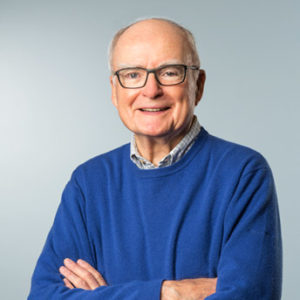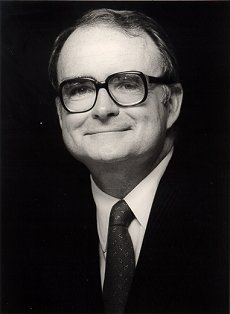“When concerned citizens take the time to master an issue, when they are able to conduct their deliberations outside the courts or the political fishbowl, they can learn to speak a common language and come up with creative solutions for problems that appear to be frozen in a perpetual contention between narrow interests.” —William D. Ruckelshaus
History
Bill Ruckelshaus: Steadfast Public Servant

William D. Ruckelshaus was a Republican known for his unwavering integrity and steadfast commitment to advancing business interests alongside environmental protection. He had a diverse and impactful background, including serving as first administrator of the Environmental Protection Agency (1970-1973) under President Nixon and serving again (1983-1985) under President Reagan.
In addition to leader of the EPA, he’d been a lawyer, Republican representative for Indiana, acting director of the FBI, deputy attorney general fired by Nixon during the “Saturday Night Massacre” of the Watergate scandal, VP of a major timber company, and head of the Puget Sound Partnership. He brought his steady-handed approach for collaborative decision making around complex environment and natural resource challenges to Wyoming when he became the founding board chairman of the University of Wyoming’s Ruckelshaus Institute.
Founding of the Institute
In 1993, Senator Alan Simpson asked Browning Ferris CEO William D. Ruckelshaus to come to the University of Wyoming to discuss a new, interdisciplinary, institute for environment and natural resources. From the first meeting, Ruckelshaus made the case that UW's new institute should focus on collaborative process and bring together stakeholders with differing perspectives to share their values and work toward solutions that would create value for all parties. He argued that this approach would provide an antidote to environmentalists and industry continually filing lawsuits against one another and freezing issues in the courts. Following that initial meeting, the UW Foundation Board asked Ruckelshaus to chair the institute’s new advisory board and he led our board to write and adopt this mission statement in 1996:
"To advance effective decision making on environmental and natural resource issues by promoting and assisting collaborative informed approaches that sustain both the economy and the environment.”
Wise words from a thoughtful leader. Read Bill Ruckelshaus’s whole speech delivered at the University of Wyoming in 1997.
From Conflict to Collaboration: Restoring Trust in Government
Early Days
After the Institute's founding, the advisory board convened multiple times per year to hold what members called a “watering hole.” Up to 40 or more board members would converge on the UW campus to discuss the critical environment and natural resource challenges of the day, hear one another’s insights, attend field trips to key sites in Wyoming, and give the institute direction for addressing those challenges. The institute staff followed up on the board’s discussions by convening stakeholder groups, researching issues, and publishing white papers and reports to share findings and recommendations. Over the decades, the board and institute worked on solutions for maintaining open spaces on private lands in Wyoming, conserving endangered sturgeon in the Missouri River watershed, dealing with brucellosis in Yellowstone, managing produced water from coalbed methane development, and many other issues.
Commemoration
In 2002 the institute was named to honor William D. Ruckelshaus’s leadership. Read the speech he delivered at the University of Wyoming in the occasion of this commemoration.
Remarks Upon the Naming of the William D. Ruckelshaus Institute of ENR
Today
- Learn about the Ruckelshaus Institute of Environment and Natural Resources through our programs:
- Sign up for our Ruckelshaus Institute e-newsletter
- Meet our partner entity, the Ruckelshaus Center at the University of Washington and Washington State University
- Fostering collaborative public policy development, helping people work together to develop shared solutions to challenging issues, and building problem-solving capacity.
Our Approach
Today, the Ruckelshaus Institute advances the understanding and resolution of complex environmental and natural resources challenges in the Mountain West and support stakeholder-driven solutions to environmental challenges by conducting and communicating relevant research and promoting collaborative decision making. In all our work, we try to uphold and enact the following values:
- Collaboration: Bring people together to share values and create inclusive solutions
- Open discourse: Conduct fair, transparent, and equitable decision-making processes
- Diverse perspectives: Lasting solutions involve the range of affected stakeholders
- Interdisciplinarity: Complex issues require thinking across disciplinary boundaries
- Communication: Sound information shared in meaningful ways drives better decisions
- Accuracy: Rely on the most complete, rigorous, and up-to-date information
- Sustainability: Meet environmental, economic, and social needs now and into the future
- Leadership: Successful leaders motivate others while facilitating meaningful outcomes
- Implementation: Carry decisions through to achieve beneficial and desired impact


